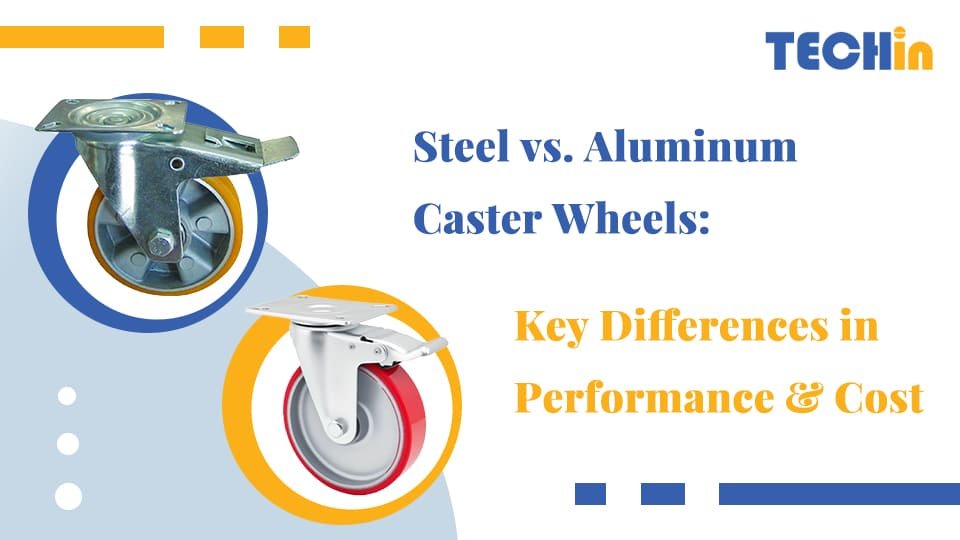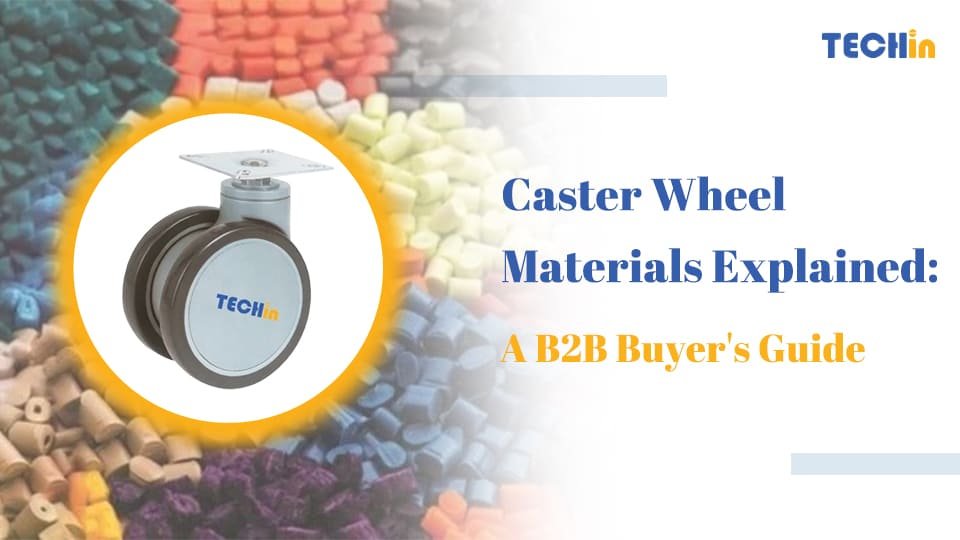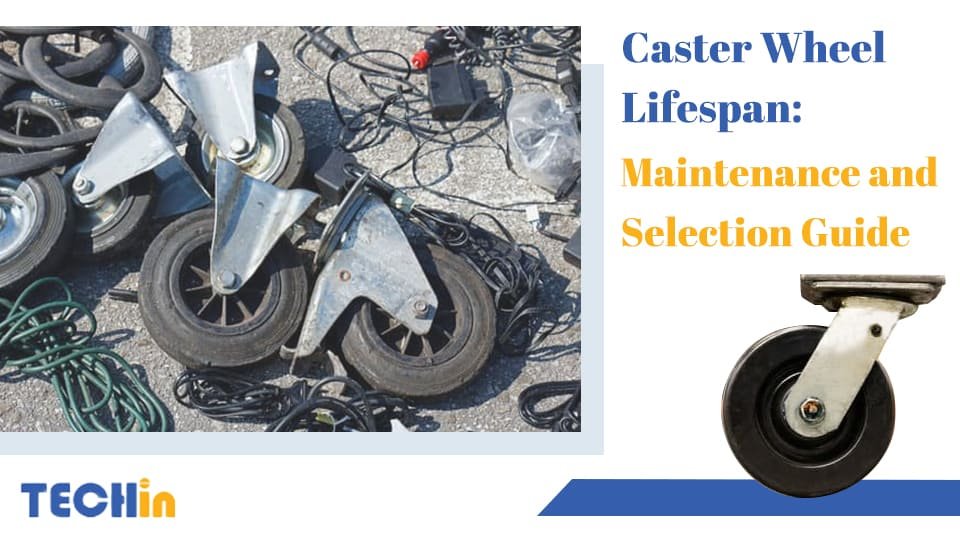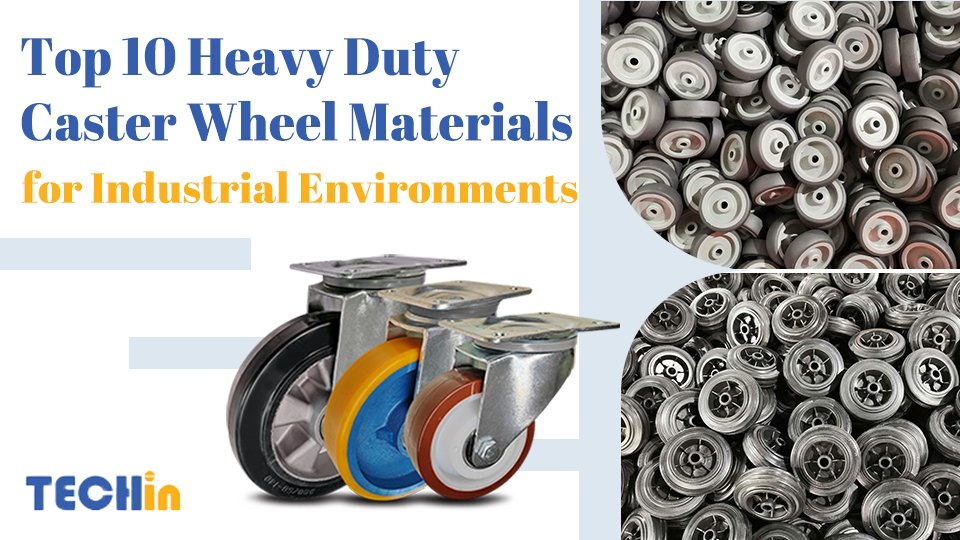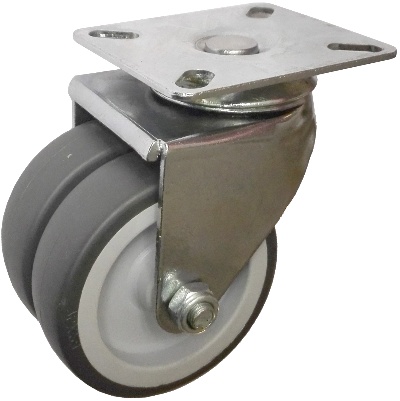
Apparatus castor wheels are important parts of machinery and industrial equipment. They help things move smoothly and make work more efficient. So, choosing the right castors is very important for businesses. When more people want high-performance equipment, picking the best castor wheels can save a lot of money over time.
Apparatus castor wheels provide easy movement and can hold heavy loads. Their design lowers pressure on surfaces and lasts longer than regular wheels. Choosing the right castor wheels helps businesses make work more efficient and safer in tough environments, which increases productivity.
Now, let’s get into the details of industrial casters. We’ll talk about what they are, what they do, and how to choose the right ones for your needs.
What is an Apparatus Castor Wheel?
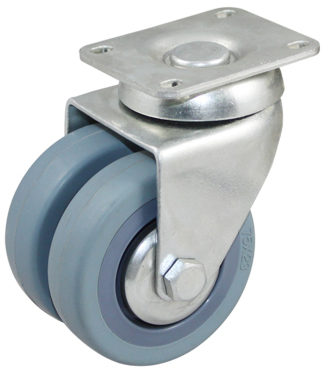
Castor wheels are specialized wheels attached to a range of equipment to provide easy mobility. They are often pivoted on an axle, allowing objects to move smoothly across various surfaces. Apparatus castor wheels, in particular, are designed for industrial and commercial use, where durability, load-bearing, and ease of movement are critical. These castors differ from regular wheels because they include a swivel feature that allows them to rotate and maneuver easily.
Top Features of Apparatus Castor Wheels
When it comes to Apparatus castor wheels, there are several key features that set them apart from ordinary wheels:
- Maneuverability: Apparatus castor wheels are designed to make heavy equipment and machinery easier to move. The swivel feature allows for effortless direction changes.
- Load-bearing Capacity: These castor wheels can handle substantial weights, making them ideal for industrial environments where heavy equipment is common.
- Durability: Built to last, Apparatus castors can endure harsh conditions and frequent use without losing efficiency.
- Material Variety: Apparatus castor wheels come in various materials—TPR (Thermoplastic Rubber), PU (Polyurethane), Rubber, PVC (Polyvinyl Chloride), and PP (Polypropylene)—to suit different needs and surfaces.
Benefits of Apparatus Castor Wheels
Choosing the right Apparatus castor wheel offers several benefits, including:
- Efficient Movement: They allow for smooth, easy movement, reducing the physical effort needed to transport heavy equipment or materials.
- Increased Productivity: With their enhanced maneuverability and weight-bearing capacity, castor wheels help speed up tasks that involve moving large objects.
- Cost Savings: Properly selected Apparatus castor wheels can help reduce downtime, maintenance costs, and the need for manual labor.
- Reduced Surface Wear: High-quality wheels reduce friction on floors and surfaces, helping to preserve the integrity of equipment and workspaces.
Applications of Apparatus Castor Wheels
Apparatus castor wheels have a wide range of applications across various industries, including:
- Material Handling: Castors are essential for moving materials and goods in warehouses and factories.
- Heavy Machinery: For construction and manufacturing equipment, castor wheels provide stability and ease of movement, even with large, bulky machines.
- Medical Equipment: Hospital beds, medical carts, and diagnostic machines often utilize castor wheels for smooth transport across different environments.
- Furniture: From office chairs to display units, castors are an integral part of modern furniture for mobility.
Common Materials of Apparatus Castor Wheels
| Material | Properties | Best for |
|---|---|---|
| TPR (Thermoplastic Rubber) | Shock absorption, gentle on floors, ideal for indoor use | Light-duty indoor environments |
| PU (Polyurethane) | Durable, wear-resistant, ideal for both indoor and outdoor use | Heavy-duty, versatile applications |
| Rubber | Superior traction and shock absorption, suitable for uneven surfaces | Rough terrain and high-impact areas |
| PVC (Polyvinyl Chloride) | Resistant to chemicals and abrasion, good for industrial environments | Chemical-resistant environments |
| PP (Polypropylene) | Impact-resistant, used in light industrial applications | Light industrial tasks |
The materials used in Apparatus castor wheels are designed to meet the specific demands of different applications:
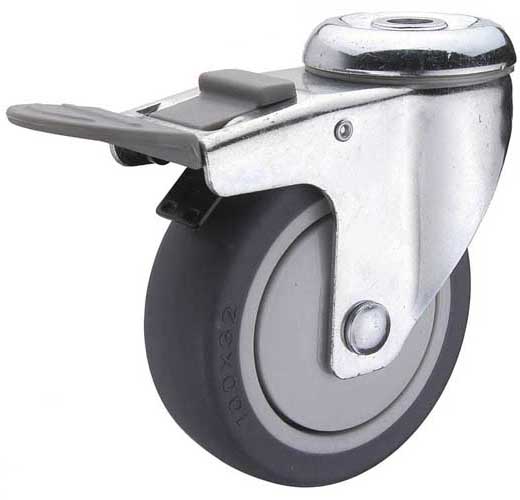
- TPR (Thermoplastic Rubber): Offers excellent shock absorption and is gentle on floors. Ideal for indoor use and environments with low to medium loads.
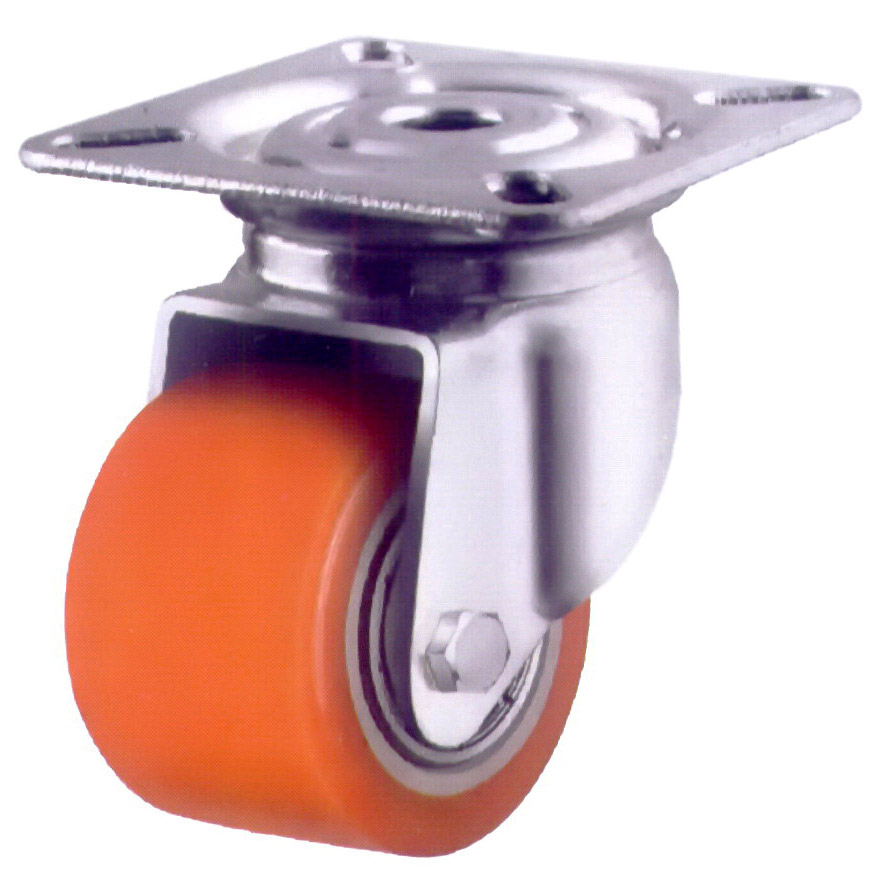
- PU (Polyurethane): Highly durable, wear-resistant, and offers excellent load-bearing capabilities. Ideal for both indoor and outdoor industrial applications.
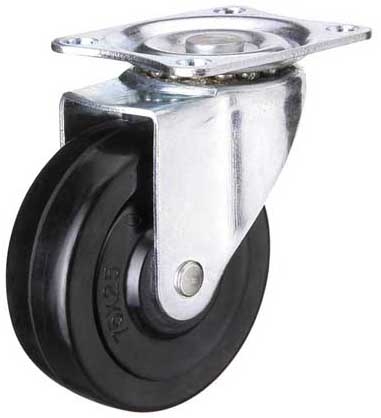
- Rubber: Known for its superior traction and shock-absorbing qualities, rubber is ideal for use in environments where movement over uneven surfaces is required.

- PVC (Polyvinyl Chloride): Known for being durable and resistant to chemicals and abrasion, PVC is ideal for industrial environments.

- PP (Polypropylene): Offers great resistance to impact and wear, often used in light industrial applications.
Buying Guide for Apparatus Castor Wheels
When buying Apparatus castor wheels, consider the following factors to ensure you choose the best option for your needs:
- Load Capacity: Ensure the wheels can handle the load of your equipment without compromising performance.
- Material: Choose the material based on the environment. For indoor, smooth surfaces, TPR or PU may work best, while rubber or PVC are better for more rugged, outdoor applications.
- Wheel Size: Larger wheels provide better stability and ease of movement, especially when handling heavy loads.
- Swivel or Fixed: Consider whether you need swivel castors (for easy maneuvering) or fixed ones (for forward/backward movement).
- Environment: Consider if the wheels will be used indoors, outdoors, or in specialized environments (e.g., wet, high-temperature conditions).
Maintenance Tips for Castor Wheels
To maximize the lifespan of your Apparatus castor wheels, follow these maintenance tips:
- Regular Cleaning: Dust and debris can cause friction, so make sure to clean castors regularly to keep them running smoothly.
- Lubrication: Periodic lubrication of the bearings ensures that the wheels move smoothly and without resistance.
- Check for Wear and Tear: Inspect the wheels regularly for signs of damage, including cracks or flat spots, and replace them if necessary.
- Avoid Overloading: Ensure that the load capacity of your castor wheels is not exceeded to prevent damage to both the wheels and your equipment.
Future Trends and Innovations in Castor Wheels
As industries evolve, so do Apparatus castor wheels. In the coming years, expect to see:
- Smart Technology Integration: Innovations like sensors to monitor load weight, track movement, and even assess wear and tear.
- Eco-friendly Options: Growing demand for sustainable materials in caster manufacturing, including recyclable plastics and biodegradable components.
- Enhanced Durability: Future castor designs will focus on making them even more durable, with longer lifespans to reduce replacement costs.
FAQs
- Why Is a Castor Wheel Necessary for Your Equipment?
Castor wheels provide mobility for heavy equipment, allowing for easy movement and better stability, reducing manual labor and improving productivity. - How Long Do Castor Wheels Last?
Castor wheel longevity depends on usage, material, and environment. High-quality wheels can last several years with proper maintenance, while regular wear and tear may shorten their lifespan. - Why Should You Choose Apparatus Castor Wheels for 2025?
Apparatus castor wheels are designed with modern innovations, offering enhanced durability, smoother operation, and higher weight capacity to meet the growing demands of industrial applications. - Can Castor Wheels Be Used in Outdoor Environments?
Yes, castor wheels made from rubber, polyurethane, or specific weather-resistant materials can be used outdoors for various heavy-duty tasks.
Summary
In conclusion, choosing the right industrial casters is a big deal. Knowing what they are, what they do, and how to choose the right ones will help you make better decisions and make your operation more efficient and safer.



